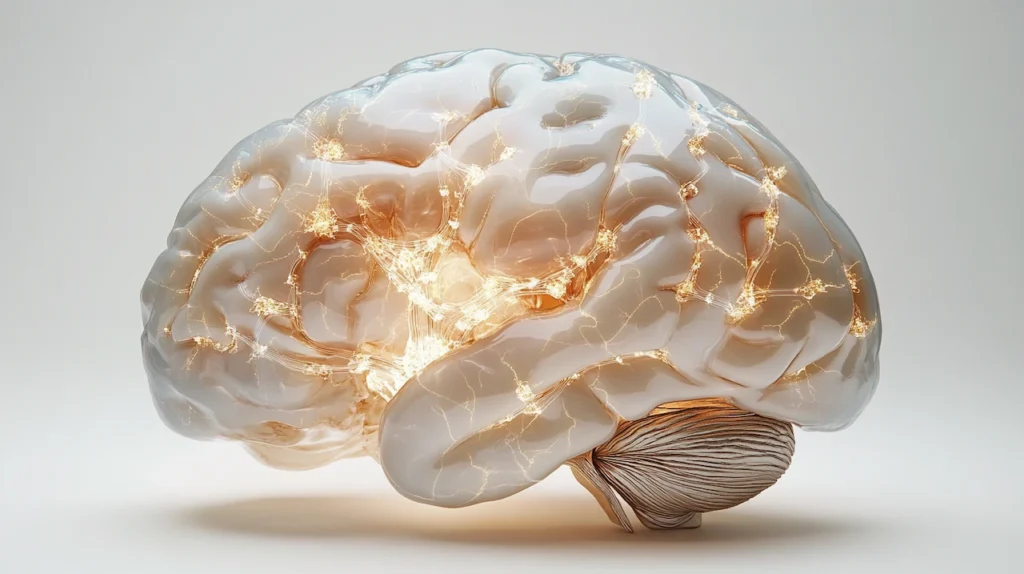Anúncio
It starts with enthusiasm. You plan your meals, hit your macros, and maybe even shed a few pounds during the first week. But around day fourteen, things shift. The cravings return, motivation wanes, and fatigue creeps in. So, why does your diet feel impossible after two weeks?
Anúncio
Let’s explore what really happens inside your body and mind during this critical period—and why recognizing it can transform how you approach health for good.

The Dopamine Drop: Your Brain’s Reward Circuit Adjusts
Initially, starting a diet gives your brain a hit of dopamine, especially if you’re seeing rapid results. You feel proud, excited, and in control. But after a couple of weeks, those neurochemical surges level off. As a result, the effort starts to outweigh the reward—at least emotionally.
Anúncio
Interestingly, neuroscience suggests that the early excitement is partly based on novelty. When the brain stops perceiving your new eating routine as “new,” the motivation connected to novelty starts to fade. This doesn’t mean failure—just that your brain’s wiring is adjusting.

Hunger Hormones Aren’t Your Enemy, They’re Adaptive
By the end of week two, your hunger-regulating hormones—ghrelin and leptin—begin to recalibrate. Ghrelin (which signals hunger) may increase, while leptin (which signals fullness) often decreases. The result? You feel hungrier than you did on day one.
This isn’t sabotage. It’s your body doing its job: protecting you from perceived calorie restriction. Emerging research shows this shift is biologically normal and should be expected rather than feared. Rather than fighting it, strategies like higher-fiber meals or meals rich in protein may help manage these effects.
Your Energy Intake May Be Too Low, Too Fast
Rapid calorie cuts are tempting, especially if you want fast results. But here’s the contradiction: dropping calories too low can backfire. Not only do you feel physically drained, but your body may respond by slowing down your metabolism to conserve energy.
In this state, even simple activities can feel exhausting. If your diet feels like a slog by week two, you might be in too steep of a deficit. Sustainable weight loss is rarely about slashing calories dramatically—it’s about consistent, realistic reduction paired with nutrient-dense choices.
Habits Haven’t Taken Root Yet
A key reason your diet feels hard at this point is because your old habits still have a stronger neural foothold. According to behavioral psychology, habit formation takes time—often more than two months, not just two weeks.
Therefore, your new routine is still fragile. This is when “decision fatigue” can kick in. Every choice to stick with your diet still feels like an effort, rather than second nature. But hang tight: the longer you maintain those actions, the easier they become.
Your Environment Still Reflects Your Old Lifestyle
Let’s be honest—your pantry, your social circles, even your digital feeds might still be full of temptations and triggers. This environment silently tugs you back into old behaviors.
By the second week, willpower alone may not be enough. This is why environmental support is crucial. Try reworking your kitchen layout, prepping snacks in advance, or unfollowing pages that fuel unrealistic expectations. Small changes create psychological space for your new lifestyle.

You’re Not Sleeping Enough (And It Shows)
Sleep plays a bigger role than most people realize in diet success. Research has shown that sleep deprivation can increase cravings, impair glucose metabolism, and intensify emotional reactions to food.
By week two, if you’re not getting consistent, quality rest, your body feels it. This increases your desire for fast fuel—often in the form of sugar or refined carbs. So if your diet feels impossible, you might need a nap more than a new meal plan.
All-or-Nothing Thinking Creeps In
You miss one workout. You eat something off-plan. Suddenly, you feel like you’ve blown the whole thing. This black-and-white mindset is one of the biggest emotional hurdles at the two-week mark.
Instead, shift to a more flexible view. One imperfect day does not undo your progress. Healthier eating is a pattern over time, not a single decision. Giving yourself grace doesn’t mean giving up—it means giving space for life to happen.
Stress Amplifies Your Cravings
Cortisol, the stress hormone, can impact both appetite and fat storage. If your life is particularly hectic during your diet attempt, your cravings might not be about willpower—they might be a physiological stress response.
Finding calming routines like stretching, walking, or journaling can create much-needed mental relief. These actions don’t erase stress, but they can buffer your body’s reaction to it.
Micronutrient Depletion Can Affect Mood
Low-carb or restrictive diets may accidentally reduce intake of key nutrients—especially B vitamins, magnesium, and omega-3s. These play important roles in mood regulation, focus, and energy production.
Thus, two weeks into a diet, subtle deficiencies can start to show up as irritability or fatigue. Balanced variety—not rigid exclusion—is often the antidote.
Your Weight Loss Expectations May Be Unrealistic
Lastly, many people expect consistent weight loss each week, but that’s rarely how it works. Your body may retain water, gain muscle, or fluctuate due to hormonal shifts. When the scale doesn’t move the way you expect, it’s easy to feel discouraged.
But keep in mind: changes in behavior often precede changes on the scale. If you’ve been consistent, progress is happening—even if it’s not linear or visible yet.
Why Diet Feels Impossible After 2 Weeks
At its core, the second-week slump is not failure—it’s physiology. It’s psychology. It’s the natural result of shifting deeply rooted habits, managing hunger signals, and navigating a modern environment that often isn’t diet-friendly.
Still, knowledge is empowering. Understanding the reasons behind your struggle helps you stay the course more compassionately. Instead of forcing your way through, you can start to work with your body and mind.
And remember: your diet isn’t a test of willpower. It’s an ongoing relationship with yourself. That includes grace, adjustment, and a few setbacks along the way
While the insights shared here are grounded in current science and behavioral research, they do not replace medical advice. Always consult with a healthcare professional when making significant dietary changes.
